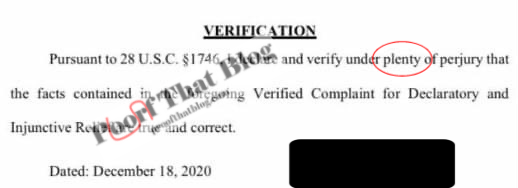I saw this advertisement in my Facebook feed recently. As you may know, I have a much higher standard for educational institutions–even preschool. If you’re going to be teaching children, you should take even more care to spell things correctly.

I saw this advertisement in my Facebook feed recently. As you may know, I have a much higher standard for educational institutions–even preschool. If you’re going to be teaching children, you should take even more care to spell things correctly.

My son sent this picture to me. One of the most important words on the item is misspelled. That could be very bad for business. Think about a Google search. How could it come up when you search for “furniture”? Just another reason spelling matters!
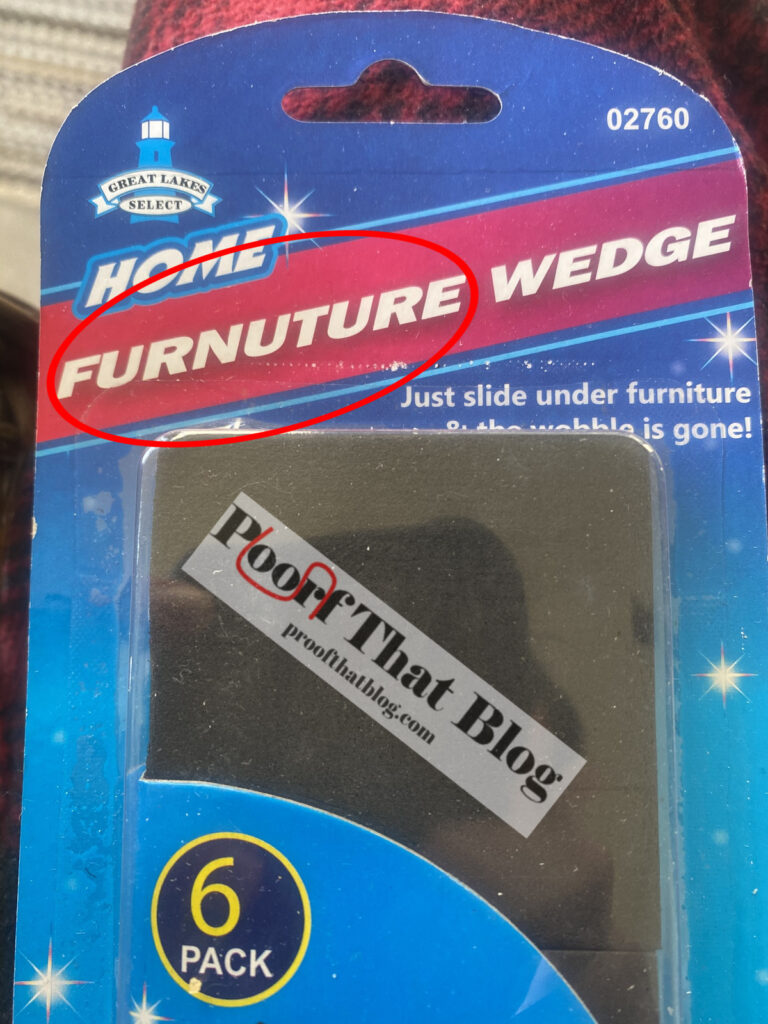
This was a Facebook post from our local news station. I was trying to figure out exactly when the space station would be visible in my area when I noticed that one place said Monday and one place said Thursday in the same story. The correct answer is that it was Thursday, but it was also confusing.
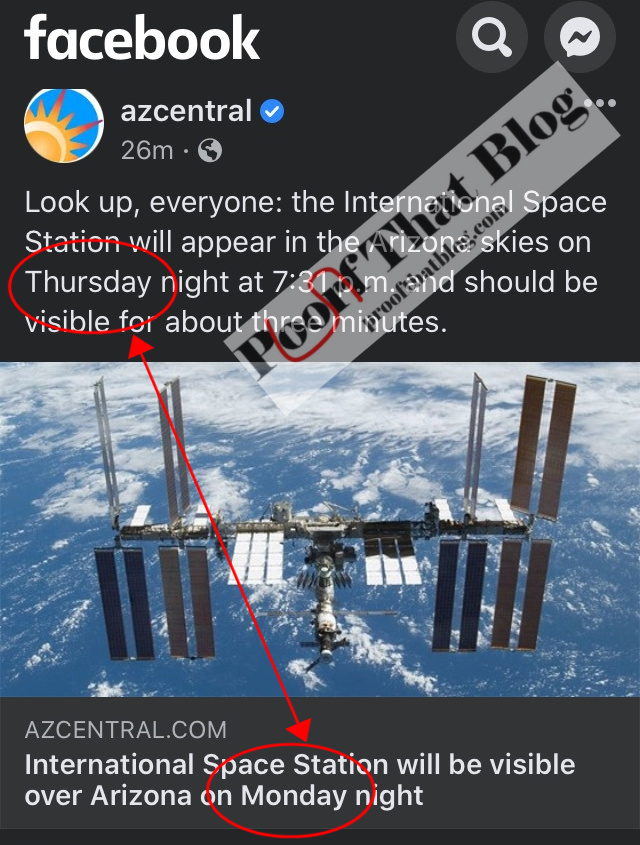
I am not sharing this example to start any kind of political discussion and any political comment will be deleted. The purpose is to show another example of spell check doing its job and checking how words are SPELLED–just not PROOFREADING and checking for content. The headings, inside addresses, “Re:” lines, and, as in this case, “To:” lines (among others) of letters and documents aren’t often looked at once they have been typed, so they are the perfect place for typos to get through.
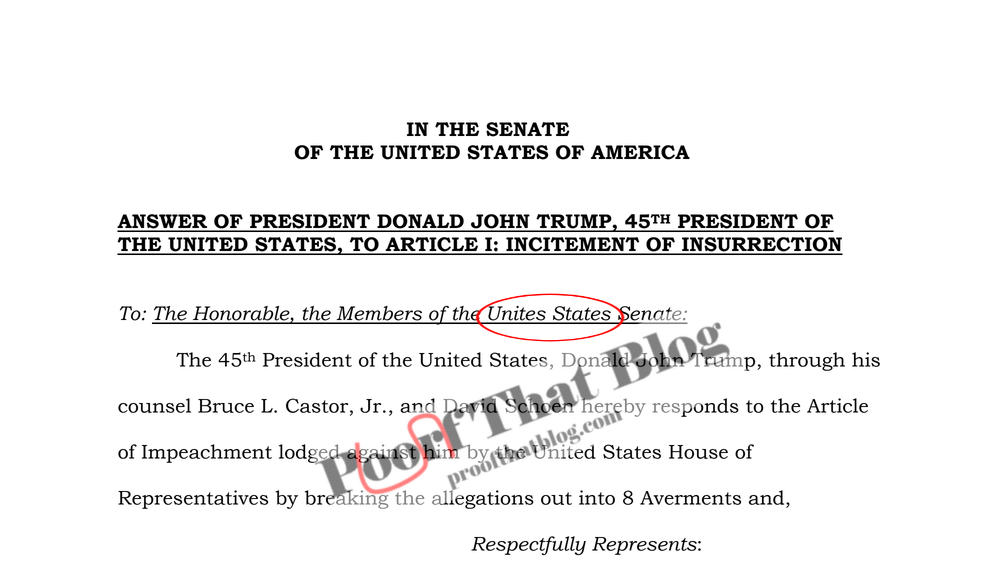
Another thing that doesn’t help with those types of errors is Word settings. So go to your Word, File, Options, Proofing, and UNCHECK “Ignore words in UPPERCASE.” That way, spell check will at least check headings and other pieces of your work that are in all caps for spelling errors.
My daughter-in-law sent me this from one of the Facebook pages she follows. Obviously, it is a correctly spelled word, just an incorrectly used word.

Twice in one week I’ve now seen this same error. This time it is in my Microsoft Outlook email. While the fact that my inbox is full will surprise no one who knows me, I’m not sure why it is so difficult for a company like Microsoft to spell “receive” correctly.

I found this typo on one of our state government pages. Although “receive” is spelled correctly in two places in the same paragraph, the first one is obviously wrong. It does take some time to read through what you’ve written but avoiding these kinds of errors is worth it.
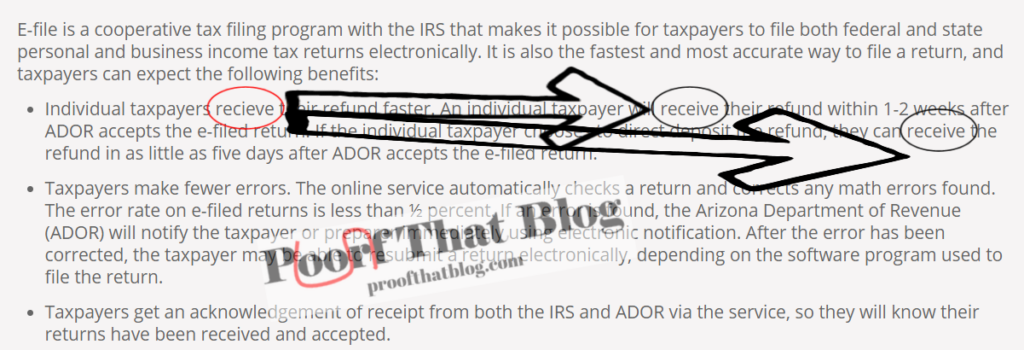
This was in my email recently. It was correct in one place, but incorrect in the subject line of the email—which is where your reader looks first. It’s the same in a business letter, the subject line is more important than many believe. Always read that as you’re proofing your letter or email.
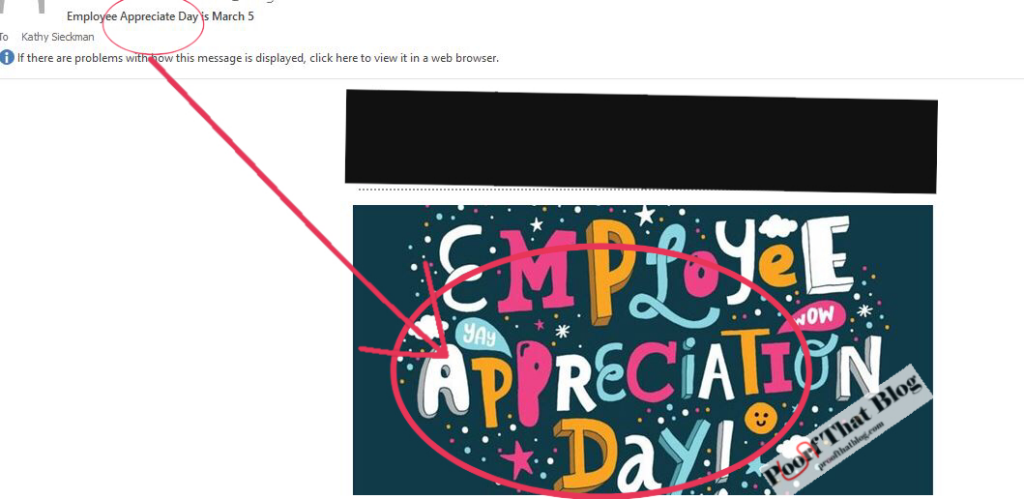
I saw this on a bank website. One would think that a bank is typically talking about money when they are talking about “principal.” In this case, they were. They even got it right twice but then, they didn’t.

I saw this one making the rounds on Twitter. I’m pretty sure he meant “penalty,” but someone typed “plenty” and spell check didn’t catch it, so it made it through. Obviously, it is important to proofread every part of a document or letter–the caption, the introduction, the “re:” line, the signature line, any language after that, and the service list. If someone had actually read that paragraph, they should have caught that.
